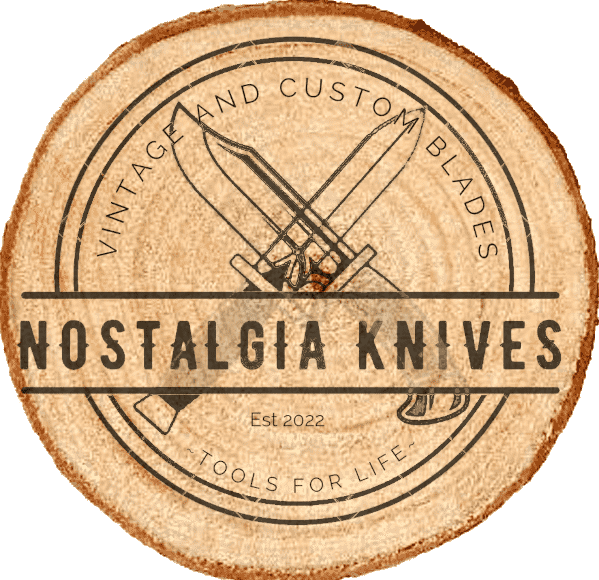Victorinox knifes

Victorinox knifes
Victorinox is a Swiss knife manufacturer and the maker of the iconic Swiss Army Knife. Here’s a brief overview of the company’s history:
Victorinox was founded in 1884 in Ibach, Switzerland, by Karl Elsener. The company was initially named “Karl Elsener & Co.” Karl Elsener’s vision was to create a durable and versatile pocket knife that could be used by the Swiss Army. He later adopted the brand name “Victoria” after his mother, and “Inox” from the French word “inoxydable,” which means stainless. Hence, the brand name Victorinox was born.
In 1891, Karl Elsener’s company developed the original Swiss Army Knife for the Swiss Army. This knife featured various tools, such as a blade, can opener, screwdriver, and more, all in one compact and foldable design. It became an essential tool for Swiss soldiers and gained popularity worldwide.
Over the years, Victorinox expanded its product line to include various models of Swiss Army Knives, each tailored to different purposes, from outdoor activities to professional use. The company also diversified into other cutlery, including kitchen knives and multi-tools.
During World War II, Victorinox produced a significant number of Swiss Army Knives for the Swiss military and Allied forces. This further increased the knife’s international recognition and reputation for quality and reliability.
The term “Swiss Army Knife” became synonymous with multi-function pocket knives, and Victorinox’s knives were highly regarded for their precision engineering. The company’s products continued to gain popularity and became sought-after tools for adventurers, professionals, and everyday users.
In the 21st century, Victorinox has continued to innovate and expand its product range. The company’s Swiss Army Knives remain highly regarded, and they are often collected as well as used for their practicality. In addition to knives, Victorinox produces a variety of other products, including luggage, watches, fragrances, and clothing.
Victorinox’s commitment to quality, precision, and Swiss craftsmanship has solidified its reputation as one of the world’s leading knife manufacturers. The Swiss Army Knife, with its iconic red handle and the Victorinox emblem, remains a symbol of Swiss ingenuity and precision.
Western Knife Company
Western Knife Company
The Western Knife Company, also known simply as Western Cutlery, is an iconic American knife manufacturer with a history dating back to the late 19th century. The company was known for producing high-quality knives, particularly for outdoor and culinary use.
Western Cutlery was founded in 1896 in Boulder, Colorado, by a group of Colorado investors, including Charles W. Platts, H.N. Platts, and Joe Gerber. The company initially started as a kitchen cutlery manufacturer, producing knives primarily for domestic use. They quickly gained a reputation for crafting durable, high-quality kitchen knives that were favored by chefs and homemakers.
Western Cutlery expanded its product line to include outdoor and sporting knives in the early 20th century. These knives were designed for camping, hunting, fishing, and various outdoor activities. One of their most famous outdoor knives was the “Western Bowie,” which gained popularity for its robust design and versatile applications. This knife became particularly popular with outdoors-men and hunters.
Western Cutlery was known for its commitment to using high-quality materials and traditional craftsmanship. The company’s knives often featured sturdy blade designs and ergonomic handles, which made them dependable tools for a variety of tasks.
In the latter part of the 20th century, Western Cutlery faced economic challenges, and in 1984, the company ceased its knife production operations. However, the legacy of Western Cutlery lives on through its collectible knives, which are still sought after by knife enthusiasts and collectors. The company’s knives are known for their quality, and they hold a special place in the history of American knife manufacturing.
Imperial Knife company
Imperial Knife company
The Imperial Knife Company is an American manufacturer with a long and storied history in the cutlery industry. The company, originally known as the Imperial Schrade Corporation, has its roots dating back to the early 20th century.
Imperial’s history began in 1916 when Albert M. Baer founded the company in Providence, Rhode Island. It started as a small knife manufacturer, producing folding pocket knives that were designed for everyday use. The company was known for its commitment to quality and durability, and its products quickly gained a reputation for being reliable and affordable.
One of the significant milestones in Imperial’s history occurred when they acquired the Schrade Cutlery Company in 1941, forming the Imperial Schrade Corporation. This acquisition allowed Imperial to expand its product range and incorporate the Schrade name, which had its own rich history in knife manufacturing.
During World War II, Imperial Schrade played a critical role in producing a wide range of knives for the U.S. military. These knives were highly functional and made to meet the rigorous demands of wartime use. After the war, the company continued to produce a variety of folding and fixed-blade knives for civilian use.
In the latter half of the 20th century, Imperial Schrade expanded its product lines to include a diverse array of knives for hunting, fishing, camping, and everyday carry. They also became known for producing pocketknives with distinctive designs and innovative features, often catering to collectors and enthusiasts. The company maintained its reputation for producing dependable and reasonably priced knives.
Despite its rich history and popularity, Imperial Schrade Corporation faced financial challenges in the early 21st century, which ultimately led to its closure in 2004. However, the brand’s legacy lives on, and the knives produced during its prime remain collectible items, cherished by knife enthusiasts for their quality and nostalgia-inducing designs. In the cutlery world, Imperial is remembered as a prominent figure in American knife manufacturing.
Buck knife company
Buck knife company
The Buck Knife Company, officially known as Buck Knives, is a well-respected American manufacturer of high-quality knives, best known for its iconic folding and fixed-blade hunting knives. The company has a rich history that spans over a century, characterized by innovation, quality craftsmanship, and a strong commitment to tradition.
The company was founded by Hoyt H. Buck in 1902 in San Diego, California. He initially developed the first Buck knife, the Model 110 Folding Hunter, in 1964, which became one of the most popular and enduring folding knives in American history. This knife featured a lock-back design, which was a significant innovation, as it offered a safer and more secure way to use a folding knife.
Buck Knives relocated to Post Falls, Idaho, in 1961, and it is still headquartered there today. The move to Idaho was motivated by a desire to be closer to the natural resources used in knife production, like wood for handles and steel for blades. This relocation allowed Buck Knives to maintain a higher level of quality control and efficiency in manufacturing.
Over the years, Buck Knives has earned a reputation for producing dependable and rugged knives. They are widely used for hunting, camping, and everyday outdoor activities. Buck Knives has also expanded its product line to include various designs and materials, while still adhering to the principles of quality and craftsmanship established by the Buck family.
One of the defining features of Buck Knives is the “Buck Forever Warranty,” a testament to the company’s confidence in the durability and reliability of their products. This warranty guarantees that Buck knives are built to last, a principle that has earned the company the trust and loyalty of customers worldwide. Buck Knives remains a family-owned and operated business, with several generations of the Buck family contributing to its legacy of American knife-making excellence.
A.G.A. Campolin Knife Company
A.G.A. Campolin knife company
The A.G.A. Campolin knife company is a well-known Italian knife manufacturer with a storied history in the production of traditional Italian switchblade knives. The company’s roots date back to the early 20th century.
The founder, Angelo Campolin, established the company in Maniago, Italy, in 1947. Maniago has a long-standing tradition of knife-making, and Campolin’s decision to set up shop there was a strategic one. He initially focused on crafting high-quality folding knives, but it was his expertise in creating switchblade knives that would make his company famous.
A.G.A. Campolin gained international recognition for its finely crafted switchblades, which are also known as stiletto knives. These knives were characterized by their classic Italian design, often featuring elegant handles made from materials like horn, wood, or bone, and distinctive bayonet-style blades. The switchblade mechanism, which allowed for quick and one-handed deployment, became a hallmark of Campolin knives.
In the mid-20th century, A.G.A. Campolin switchblades gained popularity not only in Italy but also among collectors and enthusiasts around the world. They were often associated with the rich history of Italian craftsmanship and were considered both functional tools and collectible pieces of art.
However, the global perception of switchblade knives shifted in the late 20th century, with many countries implementing strict regulations or outright bans on these knives due to concerns about their potential misuse. As a result, A.G.A. Campolin and other switchblade manufacturers faced challenges in exporting their products.
Despite these challenges, A.G.A. Campolin has persevered and continued to produce its iconic switchblades for collectors and enthusiasts in regions where they are legal. The company’s commitment to traditional craftsmanship and the preservation of Italian knife-making heritage remains a significant part of its identity, making A.G.A. Campolin a respected name in the world of knife enthusiasts.

